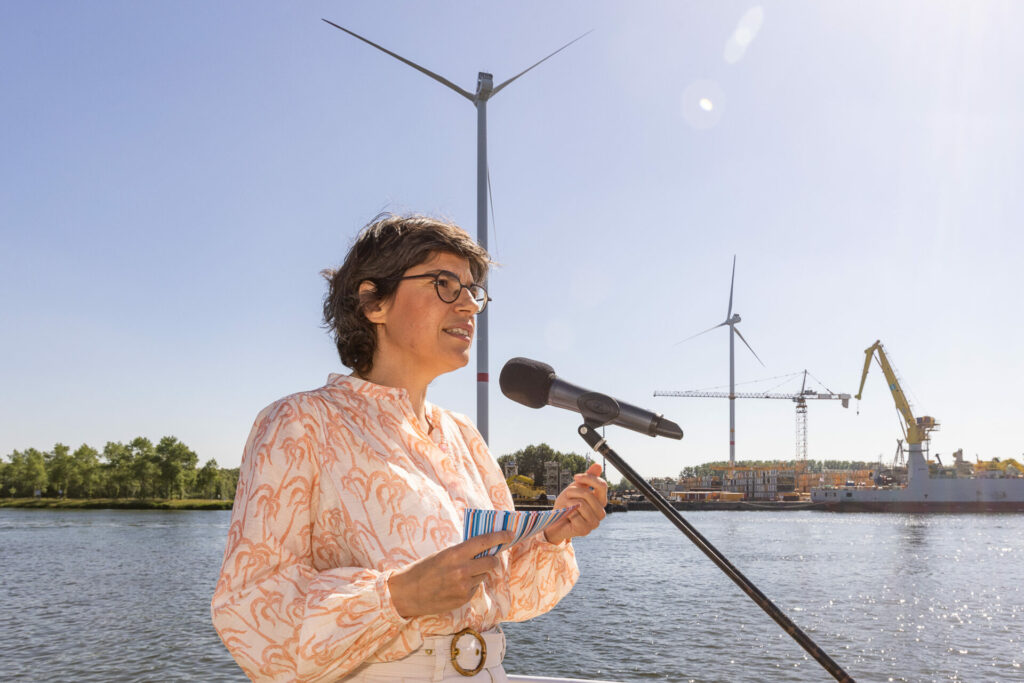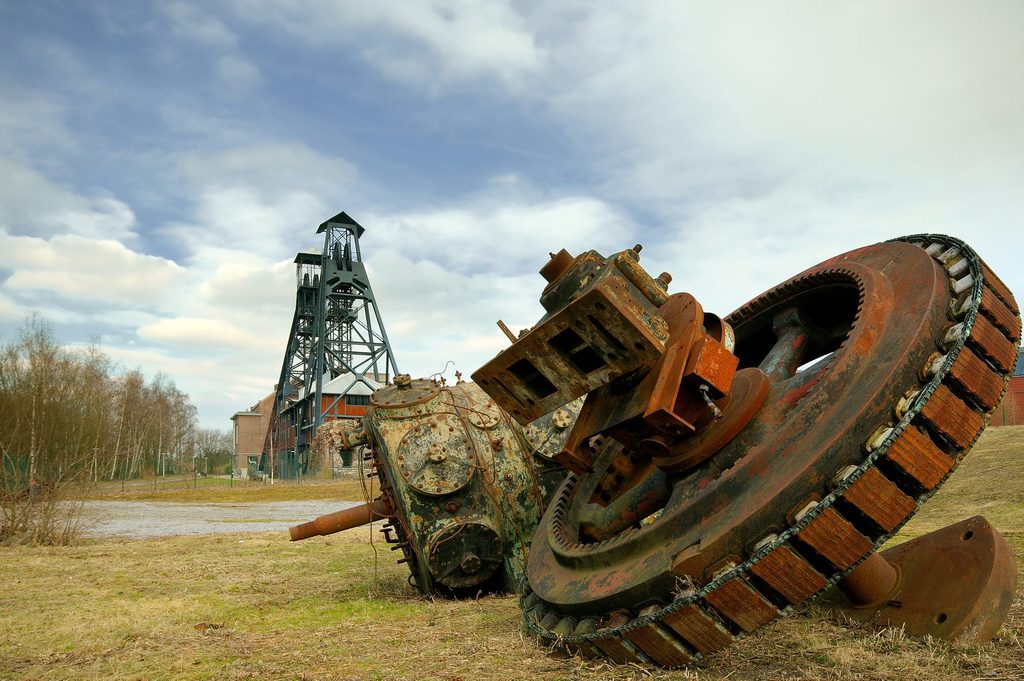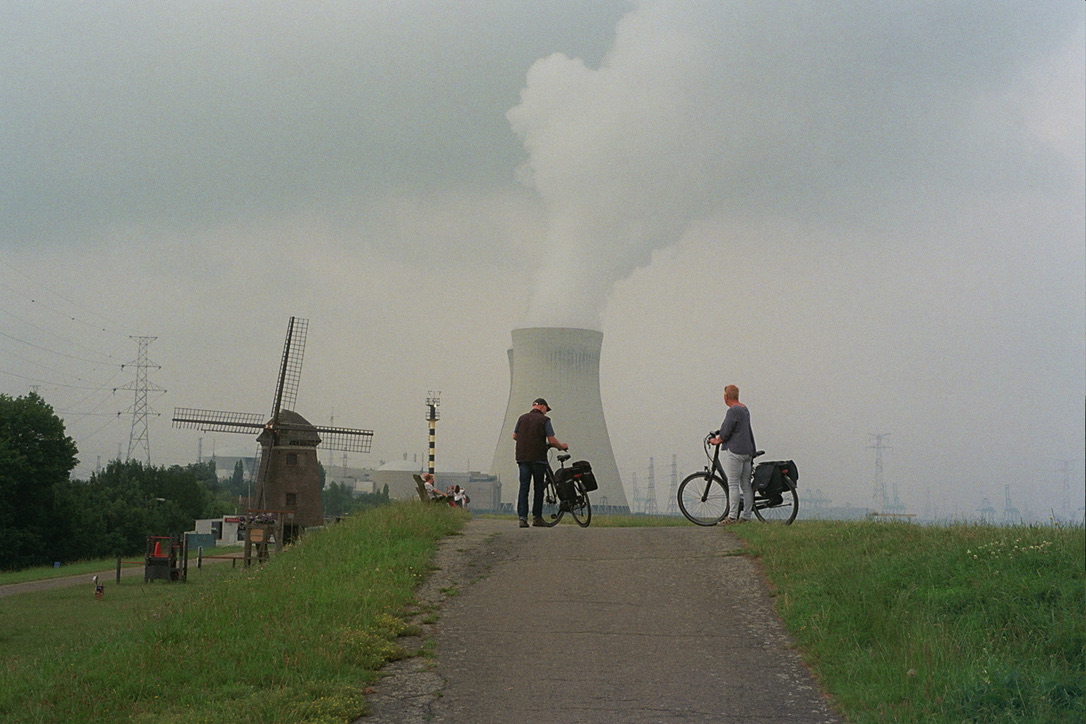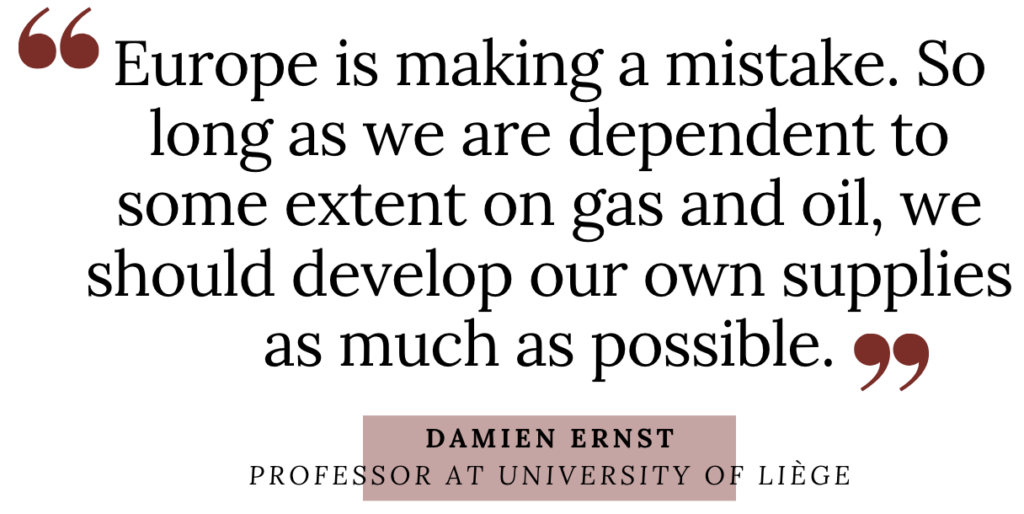Europe is on the brink of industrial ruin. For Damien Ernst, salvation lies in energy sovereignty, and wrestling the debate back from an “irrational sect” unwilling to recognise the hard consequences of degrowth.
A secure energy supply might be the most urgent challenge to Europe’s prosperity. But how we deliver it has degenerated into one of the most bitter disputes, exacerbating internal divisions and leaving us vulnerable to external shocks.
Central to the question is nuclear energy. Once hailed a power to revolutionise human progress, splitting atoms has in recent years come to be frowned upon in some circles, in others denounced as an activity to be stopped altogether.
The energy invested in this pan-European debate is remarkable, especially when mapped onto the political spectrum. Nuclear proponents in Belgium (and elsewhere) tend towards the conservative centre-right whilst the challengers are drawn largely from the opposing camp, often identifying as “green” parties that have rallied around this pillar of European energy supply as their primary battleground.
The resulting clash has been loaded with misleading arguments and detached from the economic complexities of a continent buffeted by external tensions.

An eye for detail: Damien Ernst, a specialist in electricity networks, has made a career seeing the big picture in impressive detail.
For those whose careers afford them a deeper understanding of the stakes, hijacking the energy question – nuclear in particular – for political ends has had disastrous consequences. Whilst attitudes towards nuclear have shifted sharply in the aftermath of Covid and Russia’s invasion of Ukraine, projects to modernize reactors or construct new ones have been set back years.
Unfortunately, very little airtime is given to qualified experts who can bring clarity to what is, after all, an exceptionally complicated topic. Whilst France’s Jean-Marc Jancovici is a familiar figure in his home country, the details of the debate don’t easily translate into the English-speaking media mainstream. Fortunately, Belgium’s foremost energy engineer Damien Ernst was available to talk through the matter at length.
The University of Liège professor is deeply invested in his field, a demanding task that regularly sees him pulling 50-hour workweeks with a smattering of media appearances on the side. No longer a cloistered university scientist labouring away at multifaceted formulae, Ernst has risen to public renown as someone able to apply the complexities of his discipline to the hot topics of the day – insight that isn’t always appreciated as he doesn’t hesitate to call out misguided policies or ministerial bone-headedness.
Visibly frustrated by the “dogma” that has steered off-course discussions regarding energy sovereignty, Ernst embodies an unabashed pragmatism, his delivery refreshingly frank throughout our conversation. In numerous television appearances, he has trained his crosshairs on Belgium’s energy minister and green party member Tinne Van der Straeten, who he sees not only as incompetent but as representing a destructive faction hell-bent on torpedoing the country’s nuclear capacity.

No friend to nuclear: Energy minister Tinne Van der Straeten opening wind turbines in Ghent, June 2022. Credit: Belga
The minister led a militant campaign to pull the plug on Belgium’s remaining reactors until being forced to accept that this would be madness in light of the energy crisis that hit Europe last year.
All the same, Ernst stresses that the agreement to prolong the country’s two youngest reactors until 2035 still has to be signed off, with time of the essence as next year’s national election could scupper the deal. He highlights a survey carried out in June which showed that 85% of Belgians want nuclear to remain a part of the electricity mix (in 2022 nuclear accounted for 45% of production). The same survey found that 70% of respondents would like Belgium to build new reactors.
Not to be partisan to a single cause, Ernst made clear that his pro-nuclear stance does not prevent him from simultaneously supporting the rollout of renewables: Belgium needs both. But with the fate of nuclear hanging in the balance, Ernst is leveraging his technical expertise to persuasive advantage as he underlines the danger of losing the biggest single contributor to the country's energy mix. Which also doesn't spew greenhouse gasses in the process.
The fight for Europe’s industry
As I wonder when the balance will flip in the green energy transition, Ernst explains that it’s not simply a question of how we create energy; it’s how we use it. He warns that the industrial backbone of the continent risks being broken if we can’t guarantee supply, making us beholden to autocratic antagonists – as has already been the case with Russian gas.
If the critical industries to realise our climate ambitions cannot flourish in Europe, the economic consequences will be dire, as will the societal implications. Put simply: the deindustrialisation of Europe is the number one threat to livelihoods, living standards, and the climate. For Ernst, this is the primary concern around which he builds the case for asserting control of our means of production, as well as the means of powering that production.
It's a priority that applies to Europe as a whole but Belgium in particular: Eurostat data plainly shows Belgium's industrial slump and those in affected sectors fear recovery will be impossible so long as overseas competitors – notably in Asia and the US – enjoy significantly cheaper energy.
Ernst qualifies his statements with professional precision: he is an electromechanical engineer first and foremost. Whilst he is receptive to the environmental imperatives of the day, his work deals largely with industries seeking to boost operations. As such, he is finely attuned to the economics of industry and balances this against the demand for clean energy that drives out-and-out environmentalists.
It's this understanding of both fields that leads the university professor to make the case for an approach that fits within the established capitalist framework – an argument that die-hard eco-warriors flatly reject.

It's crunch time once again for European industry. Bois du Cazier former coal mine, Charleroi. Credit: Wikimedia Commons
Indeed, the line between economic stability and environmental ambition is where Ernst breaks the conventional frame applied to the energy argument. Whilst holding to his long-term hope for a decarbonised economy, this cannot be at the cost of sacrificing industries altogether: "My deepest fear is the collapse of Europe's industrial structure."
I press him on the US Inflation Reduction Act – deemed by the EU Commissioner for Internal Market a hostile trade policy that will tear major industries away from Europe as they flock to the other side of the Atlantic. For Ernst, this protectionist prudence that the EU should replicate rather than resent.
Fossil fuels: an inconvenient truth
Ernst comes closer to controversy when I bring up the UK. Whilst unequivocal on the need to consolidate nuclear capacity and at the same time step up the charge on renewables, Ernst cautions that there is still a long way to go until these satisfy our energy demands. "We will still be needing oil and gas until at least 2040/2045," he says. So long as fossil fuels remain vital to economies, we should also keep our grip on production.
To this end, he looks kindly on the British decision to step up operations in oil, natural gas, and even coal. It’s a stance that flies in the face of environmentalism as we know it – these dirty energies are almost universally repudiated as the villains of the crusade to save the planet.
His argument rests upon the less-heard reality: Europe is still a long way off saying sayonara to fossil fuels. Indeed, industries that are the infrastructure backbone for renewables, such as metallurgy, are entirely dependent on gas and coal. Far better that we can supply our own (to higher environmental standards) than put ourselves at the mercy of hostile adversaries.
Which leads back to the media. It's not that my interviewee holds the channels of mass communication in contempt, but he regrets the lack of nuance that frames the argument in terms of "either/or". This has fuelled anti-nuclear populism that supposes we can switch to renewables in the blink of an eye.
Crucial details are missing: How do we produce the green technologies of the future? Where do those materials come from? The reality has been a recourse to coal and gas, pushing Europe further away from its objective to slash emissions.
Ernst prefers a "both-and" course of action, not always the popular message but a safer bet that, when told the right way, might close the gap between idealists and realists and get everyone pulling in the same direction.


